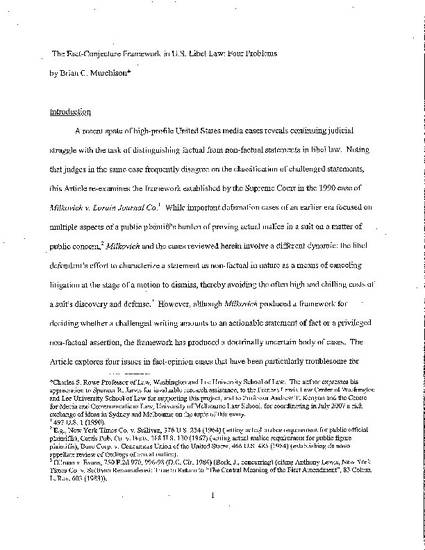
- First Amendment and
- Law
A requirement of U.S. defamation law is that an actionable statement be factual in nature, but courts since Milkovich v. Lorain Journal Co., 497 U.S. 1 (1990), have had considerable difficulty in distinguishing factual from non-factual statements and in articulating the value of non-factual public discourse in all its diversity. This Article reviews four topics - intent, context, conjecture, and hyperbole - that have been particularly troublesome to courts. It argues for a fresh appraisal of Justice Brennan's dissenting opinion in Milkovich and brings into the conversation the works of several current political theorists on the contributions of passionate political rhetoric. Noting a tendency by some courts to make unfounded assumptions about the good or bad faith of speakers, the Article advocates Justice Brennan's formulation: that courts emphasize the reasonable reader's understanding of the meaning intended by the speaker. The Article next argues that such an approach may have clarified the treatment of social context in Moldea v. New York Times Co. and provided a framework for analyzing conjecture in the recent Hatfill litigation. Finally, the Article stresses the need for courts not to downplay but to affirm the value of hyperbolic speech as a component of democratic discourse on public issues of vital concern.

Posted with permission from the copyright owner. This is a pre-publication version of the article.